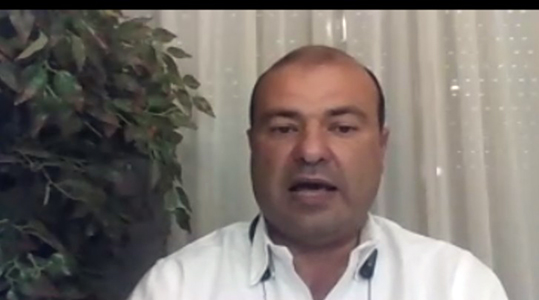The Secretary General of the Union of Arab Chambers, Dr. Khaled Hanafy, indicated during his participation in the virtual symposium, which was organized in partnership between the League of Arab States and the Union of Arab Chambers and the Arab Labor Organization, entitled: LAS Inistiative on the Impact of COVID-19 pandemic on the SME’s the Private Sector, adding that “the Corona pandemic has turned the world economy upside down and caused enormous economic turmoil through a series of simultaneous shocks,” considering that “the most severe repercussions will be on the services and trade sectors, which are the sectors that employ the largest number of the workforce in the private sector and small and medium enterprises.”
Hanafy Noted the importance of small and medium enterprises, which represent about 90 percent of the size of the Arab economy, expecting a contraction in the Arab economy, except for the Arab Republic of Egypt, which is expected to witness a slowdown in growth compared to the growth achieved in 2019.
He also affirmed that "the stage is not the stage of achieving profits for the private sector, but rather the stage of maintaining survival and continuity through the tools of the new digital revolution," stressing that "the crisis as a whole, provides an opportunity for a comprehensive reform agenda to address structural problems through a deliberate transition to digitization with the aim of building a new development model based on industrial and circular innovation in production and consumption, participation in regional supply chains, and economic diversification.
He considered that, given the weak integration of Arab economies with global value chains and the almost total absence of Arab regional value chains, the impact of the supply shock will likely be of limited impact, in contrast to the massive effects of demand shock due to the heavy dependence of Arab countries on global value chains for import.
Hanafy revealed that the losses incurred by the Arab private sector are estimated at about half a trillion dollars, at least, considering that "it is a mistake to think that economic life can return to its previous nature, because what happened blew up the previous foundations and entered the world in a different new system called high risk and its key is the fourth industrial revolution", stressing that "the new reality requires new thinking and different methods and tools that will not benefit the old tools, and these tools are digitization, innovation and leadership, which will bring with it new concepts of life and work and technologies such as big data, artificial intelligence and the Internet of things and others. "
He explained that "despite the widespread of the internet in the Arab world, there is a huge gap for its effective use in the field of trade and business, and there is a large disparity in the efficiency of the legislative structures for electronic commerce between Arab countries, where only a few of them have made remarkable progress in this. Noting that "there is a gap in the educational outputs inconsistency with the experiences required for labor markets in the era of the fourth industrial revolution," adding that "there are still many requirements, the most important of which are digital infrastructure, including financial technology (fintech), electronic payment and signature."
Hanafy considered that "the Internet is rarely used to launch new companies, while digital financing is barely present, and government digital services are very limited, with the exception of a few Arab countries."
In conclusion, Hanafy called for the necessity of activating the initiative presented by the State of Kuwait at the Fourth Economic and Social Development Summit held in Lebanon in early 2019 to establish an investment fund in the fields of technology and digital economy with a capital of $200 million, which contributed in the State of Kuwait a quarter of this amount.
Source (Union of Arab Chambers, Edited)

